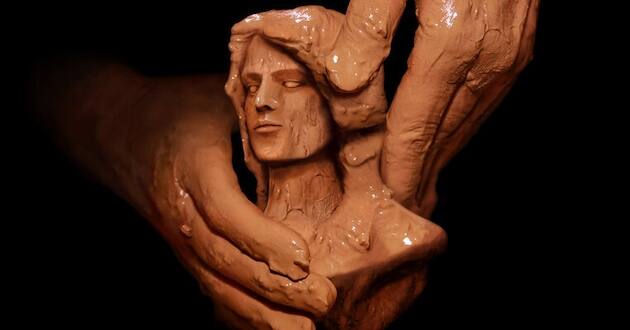Despite the theory of evolution being taught in the nation’s classrooms, more than seven in 10 Americans believe God had a hand in creating humanity, a new Gallup poll found.
More than one-third agreed with a statement that “God created human beings pretty much in their present form at one time within the last 10,000 years or so,” while another one-third said “human beings have developed over millions of years from less advanced forms of life, but God guided this process.”
A record-high 24 percent sided with naturalistic evolution, agreeing with the view that “human beings have developed over millions of years from less advanced forms of life, but God had no part in this process.” The previous record was 22 percent.
READ: Why are leading scientists rethinking evolution?
Gallup has conducted this survey since the early 1980s, and at least 70 percent of respondents have rejected secular evolutionary theory each time. Gallup’s Megan Brenan said Americans are more receptive to naturalistic evolution than ever, even if they still see God involved.
“Gallup began measuring Americans’ views of human origins using this question in 1982 and has intermittently tracked opinions since then,” she wrote. “Belief in creationism and God-guided evolution reached their peaks of 47 percent and 40 percent, respectively, in 1999 and have since trended downward. Meanwhile, support for evolution without divine intervention has nearly tripled since 1999.”
Americans’ views on religion play a major role in their beliefs about origins. Among those attending religious services at least weekly, 61 percent say God created humanity in the past 10,000 years. Among those who rarely attend church, only 24 percent do. Half of Protestants believe in creationism. Almost half of Catholics (46 percent) embrace theistic evolution. Most religiously unaffiliated (58 percent) say God was not involved in the development of human life.
READ: Leading evolutionist retracts study
Politically, most conservatives (55 percent) hold to creationism. Moderates are evenly split between God directly creating (35 percent ) and God using evolution (36 percent). A plurality of liberals (44 percent) hold to evolution without God’s involvement.
While creationists are often mocked in media, evolution is not universally accepted belief among scientists. It’s formal name is the Theory of Evolution, because there has yet to be irrefutable evidence for its existence and there is no way to actually test it.
Some of the thousands of well-known scientists who hold to creation include:
- L. Merson Davies (1890–1960) Geology; paleontology
- Sir John C. Eccles (1903–1997) Neurophysiology. 1993 Nobel Prize for Medicine and Physiology
- Dr Duane Gish (1921–2013), Biochemistry (protein synthesis)
- Richard Lumsden (1938–1997) was professor of parasitology and cell biology at Tulane University (he converted from evolution to creation and then to Christ)
- Dr Richard (Rick) Smalley (1943–2005) Nanotechnology. Was Hackerman Professor of Chemistry, Physics and Astronomy at Rice University, USA. Awarded Nobel Prize in Chemistry for research in fullerenes (buckyballs).
- Dr Clifford Wilson (1923–2012), Psycholinguistics and Archaeology
Modern-day believers in creation include:
- Dr. James Allan, geneticist
- Dr. Steve Austin, Ph.D. in geology
- Dr. John Baumgardner, Ph.D. in geophysics and space physics
- Dr. Donald Chittick, Ph.D. in physical chemistry
- Dr. Tim Clarey, Ph.D. in geology
- Dr. Ken Cumming, Ph.D. in biology
- Dr. Vernon R. Cupps, Ph.D. in nuclear physics
- Dr. Raymond Damadian, Pioneer of the MRI Scanner
–Dwight Widaman | Metro Voice








